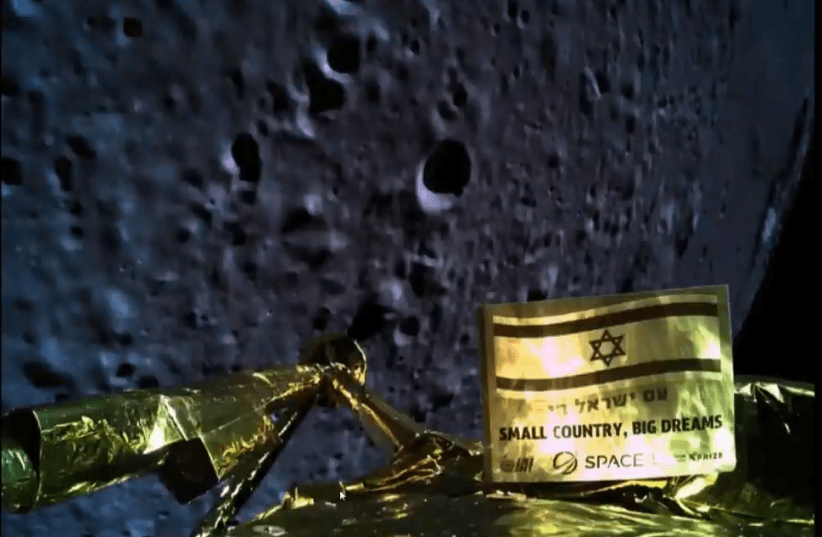SpaceIL, the team behind the Beresheet spacecraft, will not be reattempting its mission to land on the Moon, the non-profit announced on Tuesday.
Following a lengthy debate, SpaceIL decided that landing on the Moon was "not a sufficiently great challenge."
"The journey of Beresheet to the Moon, despite the hard landing, will last in the memory of Israel and the world as a successful one, a breakthrough, and very significant for future human journeys to the Moon," SpaceIL said in a statement.
"Feedback that we received from across the world in the weeks following the landing pointed toward the mission being considered an extraordinary success and breaking many world records."
As a result, the committee decided, SpaceIL would search for a new challenge. It will also keep the public informed of any decisions made and continue its educational "Beresheet Effect" projects for schoolchildren.
SpaceIL’s first, ill-fated Beresheet project, crash-landed in the Sea of Serenity on April 11.
Engineers lost contact with the spacecraft only minutes before it was due to complete the historic landing – a feat previously achieved only by the United States, Russia (then the USSR) and China – after an epic seven-week, 6.5 million km. journey since Beresheet blasted off from Cape Canaveral, Florida on board a SpaceX rocket on February 22.
While the spacecraft attempted to restart its engine several times after losing contact, the attempts proved unsuccessful, making a high-velocity crash landing on the moon inevitable.
Days after the failed landing, SpaceIL announced Beresheet 2, a second mission to land an Israeli spacecraft on the Moon. The Science Ministry’s Israel Space Agency (ISA) announced that it would contribute NIS 20 million, double its contribution to the first effort.
The ISA also requested NASA's further involvement in the second lunar effort, after the US agency provided the original mission with laser retro-reflector technology to improve communication with the module before, during and after its intended landing.
The first Beresheet mission budget stood at approximately NIS 350 million – financed almost entirely by private donors and costing a fraction of the missions sponsored by governments of the three countries that have successfully reached the Moon to date.
While SpaceIL and its lead donor, Morris Kahn, then stated their ambition to complete the second mission within two years, the organization will now formulate new objectives.
